Making Sense of the Zombie Apocalypse
Warning! Mild spoilers for World War Z, The Walking Dead: Season 1, and The Last of Us follow.
World War Z, The Walking Dead: 400 Days, Bath Salt Zombies, The Walking Dead Season 4, The Last of Us, Dead Rising, ZombiU, Call of Duty: Zombies, Plants vs. Zombies: Garden Warfare. Recent pop culture has put us waist-deep in the undead.
Why? What’s with the recent influx of zombie fiction? Why aren’t we getting tired of it?
Simple, it’s because the modern zombie narrative epitomizes millennial fears.
Horror monsters are products of their time, elucidating the subconscious fears of their respective societies of origin. Victorian taboos about sexuality and extramarital affairs made their way into vampire stories like Dracula. Giant-monster movies like Godzilla played off Cold War-era fears of instantaneous nuclear annihilation. If zombies are to the 2010s what the masked serial killer was to the 1970s, what underlying fear do they embody?
Horror Monsters and Cultural Context
Before we start, its necessary to distinguish zombies from other horror monsters. While pre-millennial horror monsters were singular entities like Frankenstein’s Monster or The Mummy, zombies are more of a force; no individual face can be ascribed to zombies, as they exist as an unstoppable plurality. The disempowering fear of the unknown made ghosts and demons scary, as evidenced by the very little screen time such monsters had in movies. Horror authors knew that audiences could more effectively terrify themselves by filling in blanks with their imagination. Conversely, depictions of zombies forgo the dread of mystery; the undead lack the creeping, supernatural power that makes beings like Chucky or Slenderman terrifying.
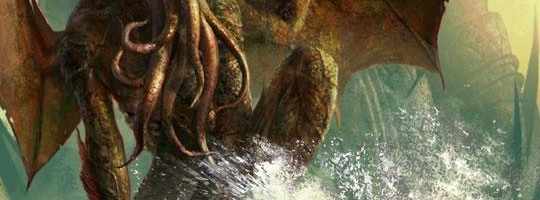
Pre-millennial monsters were defeated by heroic individuals transcending fear; think of Brody shooting the oxygen tank to destroy Jaws, or Ripley jettisoning the Alien into space; the conventions of traditional horror demand that the dreadful mystery of the monster is overcome by a hero. With the zombie apocalypse, victory is impossible, since the threat grows with every infected individual. The only sense of victory comes from survival and prolonging one’s life. This narrative manifests in game design: many zombie-themed video games feature “survival modes”, where victory is impossible and players must survive for as long as possible against incessant waves of the undead until they inevitably fail.
If traditional horror was about humans barely overcoming a mysterious threat despite being disempowered, contemporary zombie fiction concerns itself with humanity being disempowered and incapable of defeating a knowable threat. In works like The Last of Us and The Walking Dead, humanity is divided amongst itself and squabbles for scarce resources. Our survival often comes at the cost of our morality and humanity, and in spite of our defiant fight for existence, death and loss is inescapable. Tying the tropes together is the subversion of anthropocentrism: if our ideal purpose is to live to create a better world for our children, that purpose is subverted by the fact that the world our offspring will enter will be hostile and bleak. Zombies are not appealing out of their suspenseful mystery or the physical threat they pose, but rather the unfortunate changes that they cause to society.

So what does this all have to do with millennials? A lot actually, Millennials, people born from the late-eighties to the mid-nineties, enter the workforce at a turbulent time. If the postwar period’s predominant societal fears were nuclear annihilation and social upheaval, then contemporary societal fears may include controversial and encroaching issues such as climate change, terrorism, the rising cost of energy, and the uncertainty of stable employment. Issues such as the depletion of natural resources or the long-term effects of crippling student loan debt demand societal change, to which mere individuals are incapable of effecting. Organized societal attempts combating the threat seem impossible in light of human selfishness and shortsightedness. Societal changes caused by overpopulation and peak oil seem irreversible and inevitable, their effects on society vast, unknowable, and disempowering. As zombie outbreaks in fiction are problems to which individuals are powerless against, divide society, and force survival over victory, then the archetypical zombie narrative works as an effective metaphor for controversial contemporary issues.
Societal Change in Contemporary Zombie Fiction
Max Brook’s 2006 novel World War Z explores the consequences of failing to adapt to change. In World War Z’s iteration of the zombie apocalypse, the affliction necessitates massive sociopolitical restructuring, and failure to do so results in disaster. White-collar elites are rendered useless to society as immigrant farmers and plumbers become the most important members of the new utilitarian economy. Refusal to adapt strategically and abandon advanced but inappropriate technology and tactics causes humanity to lose the Battle of Yonkers, thus allowing zombies to become the dominant species on the planet. Israel manages to survive by closing off its borders, and the enigmatic North Korea goes dark, its populace retreating into underground bunkers. Only by accepting the necessity to abandon modern tactical sensibilities does the war turn around, and America’s military succeeds by adopting appropriate weapons and tactics such as carbine rifles, bayonets, and formation firing.

World War Z is unique amongst its peers in that humanity actually survives, but not without having to accept harrowing changes to the world’s geopolitical, environmental, and anthropological state. In World War Z, shortsighted people who attempt to carry parts of their preapocalyptic lives into the changing world almost always die or suffer. The most successful people and nations accept and embrace the great changes that come to their lives; such as Kondo Tatsumi, an inept otaku who escapes to the Japanese mountains and survives by joining a group of wandering warrior monks. Ultimately, World War Z’s particular metaphor posits that surviving in a changed world requires that we adapt in response to it.
Less optimistic is The Walking Dead. The first season of The Walking Dead deals with Deputy Sheriff Rick Grimes, who wakes up in a zombie-infested world from a coma and tracks down his wife and child to a camp on the outskirts of Atlanta. Pre-apocalyptic drama carries over into life at the camp, and an affair between Rick’s wife Lori, and Shane, his best friend, must be quietly extinguished in light of his unexpected survival. Race and class tensions cause conflict between survivors. And like World War Z, attachment to pre-apocalyptic thinking is dangerous and divisive as betrayals, self-interest, and moral failings lead to the deaths of many survivors. Fights for resources between mutually self-interested groups showcase the nebulous state of morality in this postapocalyptic world. The Vatos gang is played up to be a major antagonist in Episode 4; when it is revealed to be a group of criminals teaming up with a retirement home to protect the elderly, the audience is left morally confused in a world where doing “good” equates to upholding the survival of one’s group.
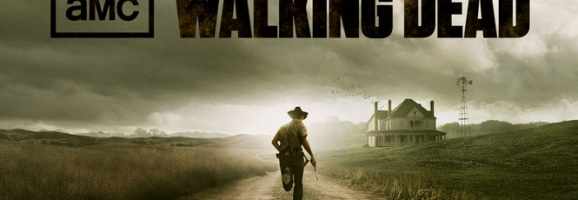
The Walking Dead’s retelling of the archetypical zombie narrative focuses on human failings caused by panicked responses to catastrophic change. Unlike World War Z, there is no organized effort to adapt to the postapocalyptic world and confront the undead, social infrastructure and government collapses, and zombification is inevitable. Humanity’s state of disorder becomes significant given Rick’s pre-apocalyptic role as a police sheriff. The tribal nature of each group of survivors in The Walking Dead means alliances are temporary, as each party remains interested primarily in the survival of its constituents, nullifying any attempt at recreating social infrastructure. This sense of noncooperation can be read metaphorically to represent the state of international diplomacy in the past half-century, which with no doubt sits in society’s collective subconscious in wake of diplomatic thin ice such as the extradition of Snowden and Western aid in Syria.
Naughty Dog’s recent survival-horror game The Last of Us is a masterclass in worldbuilding, depicting a world turned into an overprotective police state in response to the zombie outbreak in its opening Boston chapter. Unlike the depictions of humanity failing to adapt seen in World War Z and The Walking Dead, society remains intact through the dictatorial control of the provisional government, which protects the living by instilling strict curfews and executing anyone testing positive for the Cordyceps infection. While the curfew, rationing, and testing programs do keep humanity alive, the populace is unhappy with their changed quality of life, sparking a rebel movement named the Fireflies. The Last of Us depicts a society that has responded too radically to the zombie apocalypse, becoming dangerously overprotective of its citizens with the singular goal of holding out humanity for as long as possible.
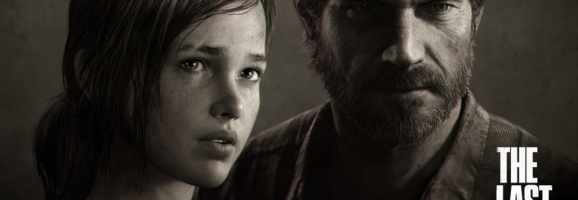
If World War Z was about the harm of failing to adapt to change, and The Walking Dead about the harm of failing to unite to address change, then The Last of Us explores the ramifications of overreacting to it. In the interest of public security and self-preservation, the provisional government causes harm to its own citizens. In light of controversial measures taken to deter terrorism like PRISM, postapocalyptic Boston becomes an interesting metaphor for divisive adaptations to change.
To a Better Future
In an interview, George Romero, father of the modern zombie film, said “In my mind, they [zombies] don’t represent anything to me except a global change of some kind. And the stories are about how people respond or fail to respond to this and that’s really all they’ve ever represented to me.” Romero’s work, created in the wake of the massive social upheavals and changes of the sixties, remains thematically akin to the contemporary works discussed here.
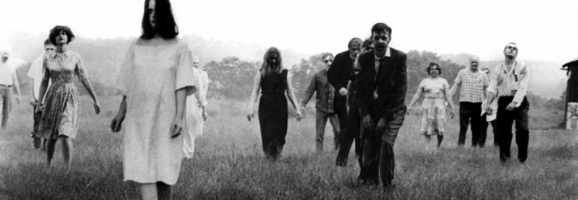
If Millennials fear the encroaching societal changes brought by economic collapse, terrorist attacks, and climate change, then zombie fiction becomes the perfect outlet for society to explore and confront those fears, making peace with that disempowering feeling of inevitable doom inherent to the genre. Modern depictions of society’s response vary greatly. From World War Z’s bumbling, but ultimately victorious fight to The Walking Dead’s fragmented and divided inability to fight, and The Last of Us’ suffocating overprotectiveness, the archetypical zombie narrative is ultimately one about change, both in the world around us and within us.
Contemporary theorists assert that humans compose myths to make sense of the world and confront underlying societal fears. Perhaps it could then be said that the contemporary zombie narrative represents the Myth of the Millennial Era. We live in a world where technological advancements eradicate entire industries; threats to national security come from religious and political militants rather than foreign nations, and the shadow of student debt and the scarcity of jobs leave young people disillusioned. As we step into that future, perhaps confronting our fears through fiction will allow us to overcome them, maybe even letting us approach the issues of the future with greater wisdom.
What do you think? Leave a comment.




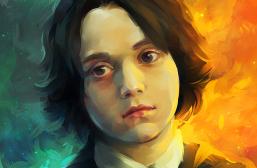
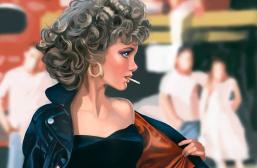
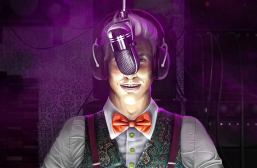



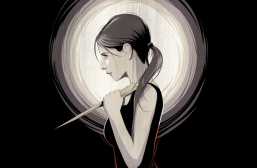
Many of these productions have borrowed a lot of elements from George Romero’s work, much of which not credited to him if you ask me. An “dream” that I have is to see what Romero would do with other with other platforms like TV or picture a game directed by him.
Brilliant, article – very enjoyable read!
Zombies are the catalyst for a form of accelerated and fatalistic social Darwinism; or rather they are social Darwinism. They’re emblematic of a plethora of social issues but they’ve lost their potency and each successive film/series is a necrophagic rehash. It’s time metaphors in horror diversified beyond Zombies, Vampires, Werewolves etc. It’s all very well being creative with the old monsters but they’re still the old monsters. Back to the originality of Cronenbergian symbolism please!
Excuse the rant. I forgot to say: great article.
interesting, i definitely came across that in my research, but I wanted to focus on contemporary zombie fiction with this article, which is thematically different given the turn of the millennium.
World War Z is somewhat gripping, but it’s really cluttered with generic zombie movie plot points. It’s basically like 28 Weeks Later then ends becoming a less ludicrous Resident Evil. It could have been bigger than what the film has shown, but I guess they don’t have anymore stories to tell. People might find it a little fun by the visuals, camp, and the performances. In the end, it’s going to be difficult to remember all of that. It’s amazing how a great source material became a film that is so uninspired.
World War Z the movie was terrible, it switched through three writers during production and it shows given how unfocused the entire thing is.
Strange how it made so much movie, specifically when considering the bad press that it had been getting.
Loved this article. I had always wondered why the zombie format, worn out as it is, is still so popular and you article presents an interesting insight into this. One wonders, as our ever changing society continues to develop and change, what the next “monster” will be for the next generation, who knows…
i’m betting sentient AIs, but zombies are really fitting for where we are in history.
Great article, Kevin. I’ve been meaning to tackle this exact subject — zombies as a metaphor for millenial fears — but this covers it insightfully and thoroughly.
As to the next monster, I’d take your answer a step futher: I think the next big thing won’t be “pure” AI, but human/cyber blends. We’re seeing the trope in movies such as Transcendence and in tv shows such as Intelligence… also in current events such as the guy who got beaten up for wearing the Google Glass specs.
Great article! zombies and the apocalypse are considered to be ‘flavours of the month’, but, after last year, have become important and thought provoking aspects. The end of days kickstarts existential thoughts that people need to explore.
Great article! I really enjoyed it! A good example of your point on survival and how no matter what they did, it always leads to tragedy could be Dawn of the Dead (I have only seen the Zack Snyder version) as no matter how much they try to fight the virus and escape it, their escape leads to their eventual deaths, as the virus has spread all over the world.
its fascinating how the horror genre and its subgenres have evolved to identify the anxieties of society
Awesome article. Interesting to see how these genres change with new generations. As for AI being the next fear, I definitely agree. IRobot already has me in fear of robots!
The “zombie boom” in modern cinema is largely due to our unchanging ways of society. All signs with the influx of post-apocalyptic movies/shows point towards a doomed world if we adapt as a people. The thing about zombies is the “threat” of them comes from all aspects of life, so there really is no one common enemy with an identifiable face. Great article, wildly entertaining. I am writing this from my zombie-survival bunker.
Thank you for finally explaining the mass appeal of zombie narratives to me – I’m not a zombie fan, and never really understood how so many people could enjoy such hopeless/bleak/depressing narratives. But fiction-as-society’s mirror makes sense, even if my own opinion of the genre remains unswayed.
This is awesome, I really enjoyed this and I think you nailed it. I am sorry that I am only coming across this now because I think this could spark some great conversation. Really well done
Great article! Good breakdown on how zombie narratives dovetail with the context of real world concerns. The Last of Us did a fantastic job with capturing the humanity element.
Interesting seeing this nearly eight years after the fact, considering that most of the zombie and apocalyptic works are not nearly produced to this extent now. It seems to have been a fad that died.